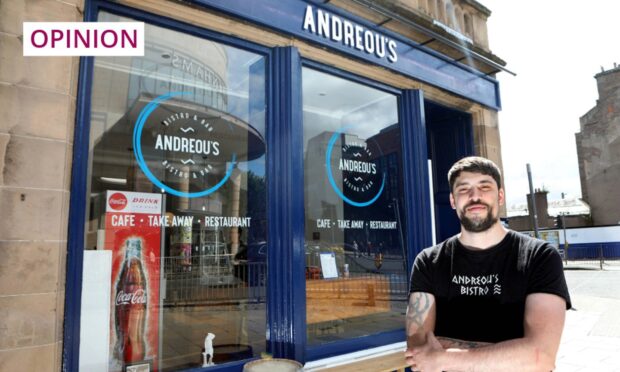I never used to feel lucky that my mum is alive.
When you’re a kid, dead mums are everywhere in books. But in real life, almost everyone your age has a mum.
Exceptions are few, far between and – most of all – shocking.
Because that stuff only happens when you’re older.
I don’t remember what age exactly it stopped being shocking when someone’s mum wasn’t around – whether that be because of family circumstances, or distance, or death.
Maybe it was about the same age as we started saying “Congratulations!” instead of “Oh s***, what you gonna do?” in response to “I’m pregnant”.
But somewhere over the years, we got older.

And where Mother’s Day used to be pretty simple – the biggest question was ‘Are you getting your mum the new Ian Rankin or a Baylis and Harding gift set?’ – now, it’s a bit weird.
Because as the day drew nearer this year, I realised just how many of the people I love would not be doing what I’ve been doing, without much thought, for my entire adult life: going home to mum.
‘No, like… home, home’
It’s a strange thing, spending your 20s in a city, away from your family.
Your friends become your immediate support system, and your lives become enmeshed.
You know about each other’s work gossip and annoying siblings. You share shopping habits, favourite walks, bad break-ups and worse haircuts.
But it’s understood, implicitly, that this ‘city home’ is not quite as real as home home.
So then how do you navigate the moments like Mother’s Day, where you get to retreat to home home, and your friend can’t do the same?
Do you let the day go by without acknowledgement, better to minimise the sadness you imagine they’ll feel?
Or if not, how do you acknowledge it? Is a text OK? What do you even say? What if they aren’t sad and then your text makes them sad?
Can you tell them about your plans with your mum? Is that insensitive? Do you offer to include them in your plans? Is that insane?
How the hell do you reach across an uncrossable gulf to tell your chosen family: I’m here for everything else, I can be here for this too.
These questions had me in knots, so I did the only thing I, as a journalist, know how to do with questions: I asked them.
Over several conversations with (willing) friends whose mums won’t be around on Mother’s Day, I asked every uncomfortable question I could think of. Here’s what they said:
Mother’s Day dos and don’ts, straight from the horses’ mouths
1. DO Acknowledge the day
This was by far the most-stressed point.
Avoiding the subject of Mother’s Day altogether, or pussyfooting around it, creates an atmosphere of pity, making you seem uncomfortable and therefore unapproachable to your friend.
Acknowledging the day, especially ahead of time, lets your friend know that you’re tuned into the reality of their situation, and makes it easier for them to lean on you as the day draws nearer if they want to.
This can be as simple as saying: ‘Mother’s Day is coming up, I need to figure out where to take my mum’ and letting your friend respond to that.
2. DON’T project your own assumptions about how they ‘must’ be feeling
A big one for me. Often, I don’t bring up occasions like Mother’s Day with bereaved or estranged friends because I think I would find it really upsetting, if I was in their shoes.
But I’m not in their shoes.
And oftentimes, I’ve been told, the expectation that it’s a hard day is the thing that makes it hard – which makes total sense.
Ask open-ended questions i.e. ‘How are you feeling that Mother’s Day is coming up?’, rather than closed or assuming language like: ‘You must be feeling weird that Mother’s day is coming up’. This gives your friend more scope to be honest with you.
3. DO share your own happiness
This seems counter-intuitive, because we have a culture that equates sharing joy with bragging or gloating. But in a real friendship, your friend isn’t expecting you to hide the fun things you’re up to out of sensitivity for them.
So if they ask what you’re up to and you’re on a mother-daughter spa day, or out for lunch with mum, don’t lie.
And remember, there’s a strong possibility they do want to talk about their own situation. A joyful experience or memory is often a much easier place for someone to start that conversation from.
4. DON’T expect anything
Replies. Likes. Tears. Gratitude. Social time. These are just some of the things you should not expect if your friend is unable to be with their mother on the day.
Some folk will want to completely shut off their phone, to disengage with the flurry of celebration, and that is their prerogative. If you’ve previously opened the conversation, that still does not mean they will feel like coming to you on the day itself.
We’re inclined to want to ‘fix’ the difficult emotions of those we care about, but the likelihood is if they are having a rough time, there’s not much you can do to ease that.
Just be there when they resurface – and keep being there beyond this one day.
Most of all, start the conversation. We may not be kids anymore, but we’re all still someone’s kid. And that can be… well, a bit weird.
For information on coping with the loss of a parent, visit Cruse.
REBECCA BAIRD: Sometimes the best thing you can do for live music is refuse to buy a ticket












